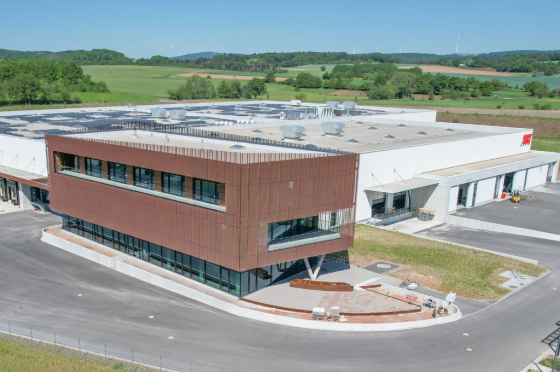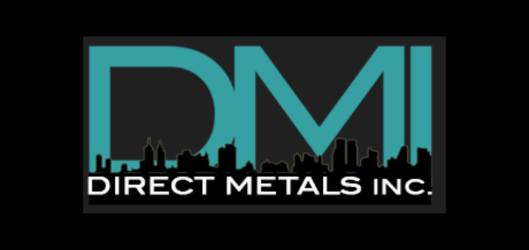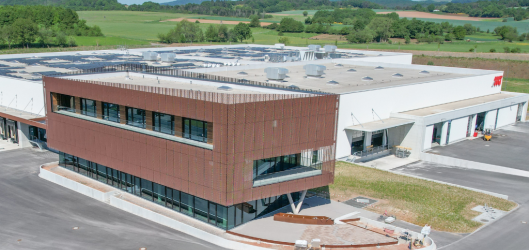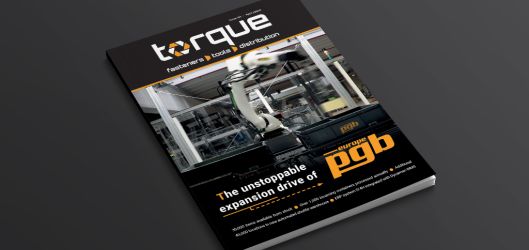
MKT's extensive facility expansion will become fully operational later this year, vastly growing its manufacturing and storage space to boost availability and capabilities, all in a unit where sustainability has been factored in as a cornerstone. A project thrilling enough for the editorial team of the Torque Magazine to pay a visit to MKT in Weilerbach, Germany...
When MKT CEO Stefan Weustenhagen told Torque Magazine earlier this year about the company's major site expansion one that would take the anchor specialist to a whole new level—it wasn't long before we scheduled a visit. On a sunny morning in mid-May, we stepped into the new facility, months before its official completion scheduled for 2 October this year.
The new building is being brought online in phases, and production is already underway in some areas. It's clear that this is a major leap forward for the company, far from its humble beginnings in 1990, when operations started with just four employees in a converted car workshop.
The new facility, reportedly a €30 million investment, adds 15,000 m2 of manufacturing space—doubling the company's total production area. Upon entering, we were immediately struck by the low noise levels and clean air—improved working conditions that are in stark contrast to the harsher environments of traditional hardware manufacturing. While some of the space still unoccupied, it's rapidly filling with machinery and equipment. This room to grow allows for greater efficiency and operational agility-securing MKT's core strength to deliver made-to-order products within just two to six weeks.
Made in Germany for the world
We move on to an area where large header machines work rhythmically. pressing steel wire into shape—up to three finished parts per second. Julian Löwen, one of the many long-standing employees, walks us through the production process. He pulls a tiny nail anchor, precisely formed by a machine the size of a big garage. Sensing our surprise at its small size, he smiles and assures us to show bigger anchors later.
As we head to the next production area, passing rows of CNC machines and automated washing and packaging stations, Löwen shares stories from his decadelong journey at MKT—first in production, now in product management. MKT has delivered anchors for high-profile projects like Berlin's Olympic Stadium, the Gotthard Base Tunnel in Switzerland. the Library of Birmingham in the UK, the Sheikh Zayed Grand Mosque in Abu Dhabi, and the Clem Jones Tunnel in Brisbane. Australia—to name just a few.
Löwen picks up a conical stud probably weighing five pounds, part of a bonded expansion anchor: "We produced this custom part for the tunnel project in Australia—made from high corrosion resistant steel. We won the bid because of our quality and the ability to deliver on-time. It was the biggest single order in our company's history," he says, motivated by being part of the success story.
Sustainability and supply chain stability
Time to move on. Westenhagen wants to show the rest of the building. On the way to the office and utility rooms, we pass massive steel coils and bar bundles being moved by forklifts. Nearly 10,000 tons of steel are processed here each yean Most of it is supplied from mills in the nearby Saar region, one of Germany's traditional steelmaking hubs. Some stainless steel grades are sourced from neighbouring countries. Also, the raw material for MKT's chemical anchor capsules-produced for anchor sizes up to M30-also come from within the EU. This regional sourcing ensures a robust and resilient supply chain, something stress-tested during the COVID pandemic
Sustainability is another benefit of regional sourcing, and that is a topic that was anchored into the building extension project. Voller Fuchs, MKT's project engineer explains: "Among the eco-smart features of the new site is heat recovery: Using recuperators and heat exchangers, warm air from the production area is captured, filtered, and redistributed-making conventional heating almost unnecessary."
We climb to the rooftop, taking in sweeping views of the West Palatinate countryside, dotted with wind turbines. The roof itself is almost entirely covered with solar panels, mounted on a 200 mm thick layer of insulation. which gives the surface a soft feel underfoot
"Today solar power covers 35% of our production energy needs," Fuchs continues. "The remainder comes from certified green electricity. So, the energy cost spikes Germany saw after the gas crisis didn't impact us. Forward-thinking planning and early investment are paying off."
Weustenhagen adds with visible pride: "The building is on track to be certified gold by the German Sustainable Building Council (DGNB)—and we're optimistic about achieving platinum. That would make us the first manufacturing facility ever to earn a platinum DGNB rating. It's proof that sustainability and innovation go hand in hand." The DGNB system assesses sustainability across all phases of a building's lifecycle, including ecological, economic, technical, sociocultural and location-based criteria.
MKT on a path of continued growth
MKT's strong regional supply network has been instrumental in helping the company grow amid volatile market conditions. Staying flexible and committed is pivotal for the success, a trait embedded in the DNA of MKT and its staff. Over the past 35 years, the company has experienced sustained growth, reaching nearly €85 million in revenue in 2024-a compound annual growth rate of around 10%.
Looking ahead, MKT is expanding its international reach. With a solid presence in Europe, the company is now increasing its focus on the Asia-Pacific region -home to some of today's fastest-growing markets.
"These are challenging macroeconomic times," admits Weustenhagen. "But we're rising to the next level to meet them, encouraged by our customers who value not only the technical excellence of our products, but also the fact that they are made in Germany under truly sustainable conditions." With that, we descend from the sunny rooftop, leaving with lasting impressions of a company that's ready for what's next.



